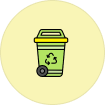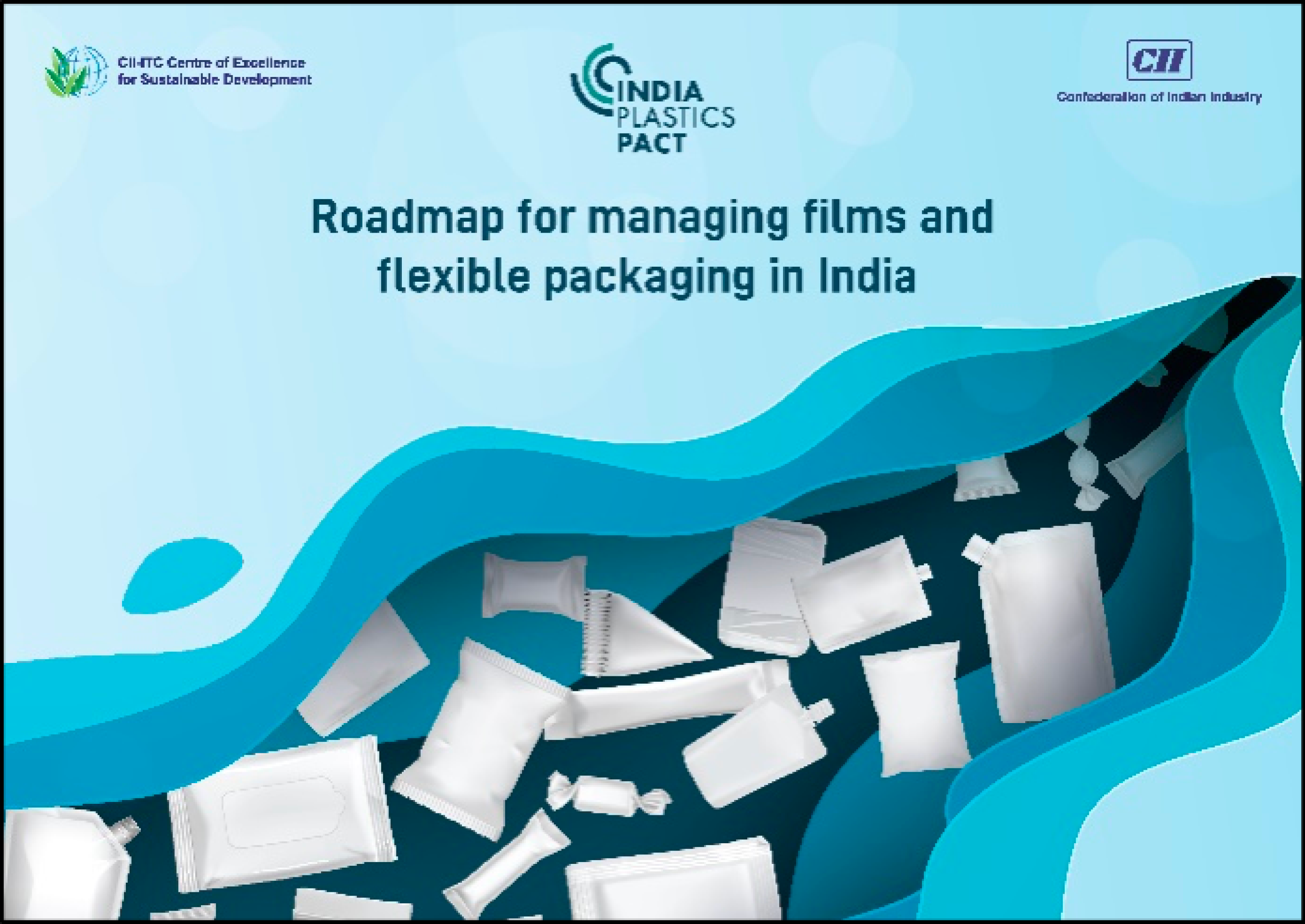Roadmap for managing films
and flexible packaging in India
Background
Flexible packaging accounts for 73% of the total plastic packaging used in India. Widely used because of its low cost and versatility, particularly for fast-moving consumer goods (FMCG), it enables cost-effective transport of products to the country’s large and geographically-dispersed consumer base. India, a highly cost-sensitive market, benefits significantly from the use of flexible packaging, allowing businesses to cater to consumers across socio-economic categories.
Despite attractive cost economics, easy availability, excellent functionality and versatility, the use of flexible packaging is associated with significant challenges.
Why a separate Roadmap for films and flexible packaging?
A roadmap will identify and address particular features of flexible packaging which make it both, an excellent packaging choice, but also a challenge when it enters the waste stream.
The activities outlined in the roadmap are categorized into five intervention areas. These intervention areas serve as the foundation for targeted actions aimed at improving the management of flexible packaging within the plastics value chain.

Design
Initiatives to improve the design of packaging to make it more recyclable.

Segregation
Activities focused on improving the segregation of flexible packaging waste.

Collection
Activities focused on improving the collection and channelization of flexible packaging waste to recyclers.

Recycling
Actions aimed at increasing the high-quality recycling of collected materials through advanced mechanical and non-mechanical recycling.

End markets
Efforts to identify, create, and expand markets for recycled flexible packaging.
